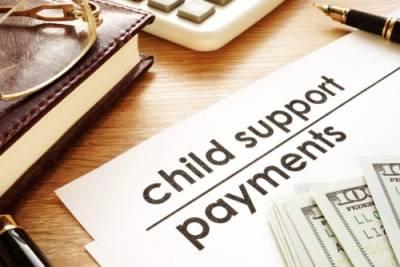Recent Blog Posts
UPDATED: Divorce When a Spouse Has Dementia

Originally published: January 17, 2018 -- Updated: November 3, 2021
UPDATE: In addition to considering the issues discussed below, a person will need to be sure to understand how issues such as property division or spousal maintenance will be addressed when divorcing a spouse with dementia. This will ensure that a spouse who cannot provide for themselves will have the necessary financial resources, while also making sure the other spouse will have the ability to meet their own needs going forward.
Spouses have the right to the equitable division of marital property when they get divorced. Even if a spouse has dementia and is unable to manage their own finances, they will still have the right to receive their fair share of the marital estate. The other spouse and a person serving as the guardian or representative of the spouse with dementia may be able to negotiate a workable property settlement. For example, financial assets may be allocated to the spouse with dementia to ensure that they will be able to reside in a nursing home and receive the proper care, while the other spouse may retain ownership of the family home, a vehicle, or other property.
Top Questions About Alimony in Illinois
 If you are getting divorced, you may understandably have concerns about the divorce’s impact on your finances. Illinois law allows courts to award spousal maintenance, also referred to as alimony or spousal support, to help offset the negative financial impact of a divorce. However, spousal maintenance is only available in certain circumstances. Many people misunderstand how and when maintenance is available in an Illinois divorce. Read on to learn the answers to the most frequently asked questions about spousal maintenance.
If you are getting divorced, you may understandably have concerns about the divorce’s impact on your finances. Illinois law allows courts to award spousal maintenance, also referred to as alimony or spousal support, to help offset the negative financial impact of a divorce. However, spousal maintenance is only available in certain circumstances. Many people misunderstand how and when maintenance is available in an Illinois divorce. Read on to learn the answers to the most frequently asked questions about spousal maintenance.
How Can You Get Alimony?
Alimony or spousal maintenance is not automatically awarded to a spouse in Illinois. There are three main ways that you may receive spousal maintenance:
Mutual agreement between the spouses – You and your spouse may be able to agree to spousal maintenance terms through your respective attorneys or during the mediation process.
How Does Goodwill Affect a Professional Practice During a Divorce?

Married couples who choose to get a divorce will need to address multiple legal issues, including how to divide their marital property. Determining a fair and equitable division can often be a complex matter, especially if one or both spouses own a business. In these cases, a business valuation will need to be performed, and if a business is part of the marital estate, a couple will need to divide business assets alongside other property. Those who own professional practices will often be concerned about whether they will be able to continue owning and operating their business after getting divorced. Determining the proper value of these practices is an essential part of the property division process, and the goodwill associated with a practice may need to be considered.
When Can a Postnuptial Agreement Be Beneficial for Married Spouses?

Most people are familiar with the idea of prenuptial agreements, which are legal agreements made by couples who are planning to get married. While prenups are often thought of as tools used by celebrities or wealthy people, they can provide benefits in many other situations. For couples who do not have a prenup or who wish to make additional agreements based on changes to their circumstances, postnuptial agreements can provide similar benefits. By understanding the situations where a postnup may be a good idea and working with an experienced family law attorney, spouses can use these types of agreements to address their needs.
Cases Where a Postnup May Be Used
A postnuptial agreement may address how certain types of issues will be handled if a couple chooses to get a divorce or legal separation, including making decisions about the division of marital property or spousal support. An agreement may also address other issues, such as each spouse’s right to make certain types of financial decisions during their marriage. A postnup can be beneficial in situations such as:
When Does Paternity Need to Be Legally Established in Illinois?

Every child deserves to be cared for by loving parents, and a child’s mother and father both have obligations to support their child and ensure that the child’s needs will be met. Parents have the right to be involved in raising their child and spend time with them on a regular basis. While this right may be automatically established for some parents, others may need to take steps to legally establish paternity. Doing so can ensure that the rights of the parents and the child will be protected.
Situations Where Parents May Establish Paternity
A presumption of paternity exists when a mother is in a marital relationship with a spouse. If the mother is legally married when her child is born, her spouse is presumed to be the child’s parent, and no action will need to be taken to ensure that the other parent has legal rights toward the child. This presumption also exists if a mother’s marriage ended within 300 days before her child was born, including in cases involving divorce, legal separation, annulment, or the death of the other spouse.
What Types of Protection Orders Are Available in Illinois?
 Domestic abuse can take many forms. Some victims suffer physical abuse including punching and kicking. Others are psychologically manipulated and isolated from their loved ones. Some aggressors show up at the victims’ homes, schools, and workplaces or use threats and intimidations to maintain control over their victims. If you have been stalked, threatened, or abused, you should know that there are legal protections available to you in the form of protection orders.
Domestic abuse can take many forms. Some victims suffer physical abuse including punching and kicking. Others are psychologically manipulated and isolated from their loved ones. Some aggressors show up at the victims’ homes, schools, and workplaces or use threats and intimidations to maintain control over their victims. If you have been stalked, threatened, or abused, you should know that there are legal protections available to you in the form of protection orders.
Emergency Order of Protection
Domestic violence or domestic abuse involves abuse between family members, past or current romantic partners, or household members. If you have been the victim of domestic violence, consider obtaining an Emergency Order of Protection (EOP). An EOP is a court order that prohibits the abusive person from contacting you or coming near you. Depending on your particular needs, the EOP may require the abusive person to temporarily move out of your shared home, surrender his or her Firearm Owner Identification Card, and stay away from your work or school. You can get an EOP on an "ex parte" basis which means that the subject of the order does not need to be present. Often, EOPs are issued by the court on the same day on which they are requested. An EOP is a legally binding court order. Violating any provision within an EOP is a criminal offense.
3 Situations Where Spousal Maintenance May Be Awarded in Illinois

There are a variety of financial issues that can affect a couple during a divorce. In some cases, one party may ask for financial support from their former spouse because they believe that they need assistance to cover their ongoing expenses. This form of support is known as spousal maintenance in Illinois, although it may also be referred to as alimony or spousal support. Spousal maintenance will not be appropriate in every situation, and it is generally only awarded if a spouse can demonstrate that they need assistance meeting their ongoing needs and that the other spouse has the ability to pay support. By understanding the situations where spousal support may be appropriate, spouses can ensure that they are addressing this issue correctly during the divorce process.
Cases Where Spousal Support May Be Needed
Spousal maintenance is meant to allow both parties to maintain the standard of living they were used to while they were married. If spousal support is awarded, the amount that one spouse will pay to the other will be determined by using a formula that takes both parties’ incomes into account, and the length of time that payments will last will be determined based on the length of time the couple was married.
What Terms Can Be Included in an Illinois Order of Protection?

Family members who have experienced domestic violence have options for addressing their safety, including requesting an order of protection. In recent blogs, we looked at when a person may be able to receive an order of protection and the types of protective orders that are available. It is also important to understand the specific protections that an order can put in place.
Remedies in an Order of Protection
There are a number of “remedies” that may be included in an order of protection. A judge will determine what measures are necessary to prevent any further acts of abuse and ensure that the petitioner and their family members are safe from harm. These remedies may include:
Top 5 Questions About Child Support in Illinois
 Child support is a crucial form of financial support for divorced and unmarried parents in Illinois. Both of a child’s parents are expected to contribute financially to his or her upbringing – even if they are not married to each other. Child support allows parents to share child-related expenses including housing, tuition, and other educational costs, clothing, and more. However, child support laws are often confusing and hard to interpret. Read on to learn answers to some of the top questions Illinois parents have about child support.
Child support is a crucial form of financial support for divorced and unmarried parents in Illinois. Both of a child’s parents are expected to contribute financially to his or her upbringing – even if they are not married to each other. Child support allows parents to share child-related expenses including housing, tuition, and other educational costs, clothing, and more. However, child support laws are often confusing and hard to interpret. Read on to learn answers to some of the top questions Illinois parents have about child support.
Which Parent Pays Child Support?
The parent with the greater amount of "parenting time" is the recipient of child support and the parent with less parenting time pays child support. Parenting time used to be called visitation. When both parents have at least 40 percent of the parenting time or 146 overnights with the children, this is a shared parenting situation. Child support payments are modified to reflect the fact that both parents have the child a similar amount of time.
What Are the Types of Protective Orders Available in Illinois?

There are multiple types of situations where a person may need to receive protection from domestic abuse or other harmful conduct. An order of protection can be used in these cases, and it can help a person leave an abusive situation, prevent their abuser from contacting them, and put other restrictions in place. In a recent blog, we looked at when an order of protection may be appropriate. As a follow-up, we wanted to look at the types of orders that are available and the process that is followed when a person asks for these types of protections.
Types of Orders of Protection
Most of the time, a victim of domestic abuse will file a petition for an emergency order of protection. This is also known as a temporary or “ex parte” order of protection, and a person can request a hearing before a judge where they will provide reasons for why the order is necessary. The respondent to the order does not need to be present at this hearing, and they will usually be notified after the order has been issued.












